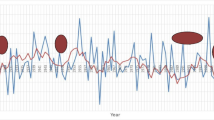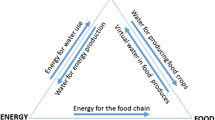Abstract
The Middle East and North Africa (MENA) region is the driest region of the world with only 1% of the world’s freshwater resources. The increasing competition for good-quality water has cut into agriculture’s water share but since the use of freshwater for domestic, industrial and municipal activities generates wastewater, the volume of wastewater used in agriculture has increased. About 43% of wastewater generated in the MENA region is treated; a relatively high percentage compared to other developing-country dominated regions. This is because of the perceived importance of wastewater as a water resource and several oil-rich countries with the resources to treat wastewater. The MENA region has an opportunity for beneficial reuse of wastewater but few countries in the region have been able to implement substantial wastewater treatment and reuse programs. The major constraints leading to seemingly slow and uneven reuse of wastewater are: inadequate information on the status of reuse or disposal of wastewater and associated environmental and health impacts; incomplete economic analysis of the wastewater treatment and reuse options, usually restricted to financial feasibility analysis; high costs and low returns of developing wastewater collection networks and wastewater treatment plants; lack of wastewater treatment and reuse cost-recovery mechanisms and lack of commitment to support comprehensive wastewater treatment programs; mismatch between water pricing and regional water scarcity; preference for freshwater over wastewater; and inefficient irrigation and water management schemes undermining the potential of wastewater reuse. However, some countries such as Tunisia, Jordan, and Israel have policies in place that address wastewater treatment through a range of instruments. Policymakers in these countries consider use of treated wastewater to be an essential aspect of strategic water and wastewater planning and management. With flexible policy frameworks addressing rapid demographic changes and increasing water scarcity in the MENA region, water reuse has great potential if integrated with resource planning, environmental management and financing arrangements.


Similar content being viewed by others
Notes
This paper discusses Algeria, Bahrain, Djibouti, Egypt, Iran, Iraq, Israel, Jordan, Kuwait, Lebanon, Libya, Morocco, Oman, Palestinian territories of Gaza and West Bank (later referred to as Palestine), Qatar, Saudi Arabia, Syria, Tunisia, United Arab Emirates, and Yemen
References
Albalawneh A (2003) Greywater as marginal water resource (in Arabic). In Workshop on Greywater Reuse, Center for Study of the Built Environment (CSBE), Amman, Jordan. 9 September 2003
Al-Jayyousi OR (1995) An analysis of future water policies in Jordan: using decision support systems. Int J Water Resour Dev 11(3):315–330
Allan JA (2001) The Middle East water question: hydropolitics and the global economy. Tauris & Co. Ltd, London
Bahri A (2000) The experience and challenges of reuse of wastewater and sludge in Tunisia. Water Week 2000, 3–4 April 2000. World Bank, Washington 15 p
Bahri A (2008a) Water reuse in Middle Eastern and North African countries. In: Jimenez B, Asano T (eds) Water reuse: an international survey of current practice, issues and needs. IWA, London, pp 27–47
Bahri A (2008b) Case studies in Middle Eastern and North African countries. In: Jimenez B, Asano T (eds) Water reuse: an international survey of current practice, issues and needs. IWA, London, pp 558–591
Bahri A (2009) Managing the other side of the water cycle: making wastewater an asset. Technical Committee (TEC) Paper No 13, Global Water Partnership
Bahri A, Brissaud F (1996) Wastewater reuse in Tunisia: assessing a national policy. Water Sci Technol 33(10–11):87–94
Bahri A, Basset C, Oueslati F, Brissaud F (2001) Reuse of reclaimed wastewater for golf course irrigation in Tunisia. Water Sci Technol 43(10):117–124
Bazza M (2003) Wastewater recycling and reuse in the near East region: experience and issues. Water Sci Technol: Water Supply 3(4):33–50
Bazza M, Ahmad M (2002) A comparative assessment of links between irrigation water pricing and irrigation performance in the near East. In Conference on Irrigation Water Policies: Micro and Macro Considerations. Agadir, Morocco, 15-17 June 2002
Bouwer H (2002) Integrated water management for the 21st century: problems and solutions. J Irrig Drain Eng 128:193–202
Bucknall J, Kremer A, Allan T, Berkoff J, Abu-Ata N, Jarosewich-Holder M, Deichmann U, Dasgupta S, Bouhamidi R, Ipe V (2007) Making the most of scarcity: accountability for better water management in the Middle East and North Africa. World Bank, Washington
Carden K, Armitage N, Winter K, Sichone O, Rivett U, Kahonde J (2007) The use and disposal of greywater in the non-skewered areas of South Africa: part 1—quantifying the greywater generated and assessing its quality. Water S A 33(4):425–32
Falkenmark M, Lindh G (1993) Water and economic development. In: Gleick PH (ed) Water in crisis. Oxford University Press, New York, pp 80–91
FAO-AQUASTAT (2009) Global information system on water and agriculture. Available at: http://www.fao.org/nr/water/aquastat/main/index.stm (Accessed on 15 May 2009)
Friedler E (2001) Water reuse—an integral part of water resources management: Israel as a case study. Water Policy 3:29–39
Grabow G, McCornick PG (2007) Planning for water allocation and water quality using a spreadsheet-based model. J Water Resourc Plan Manage ASCE 133:560–564
IPCC (International Panel on Climate Change) (2007) Climate change 2007: the physical science basis. Cambridge University Press, Cambridge
Jagannathan NV, Mohamed AS, Kremer A (2009) Water in the Arab World: management perspectives and innovations. The World Bank, Middle East and North Africa (MNA) Region, Washington
Jiménez B (2006) Irrigation in developing countries using wastewater. Int Rev Environ Strat 6:229–250
Jiménez B, Asano T (2008) Water reclamation and reuse around the world. In: Jimenez B, Asano T (eds) Water reuse: an international survey of current practice, issues and needs. IWA, London, pp 3–26
Juanicó M (2008) Israel as a case study. In: Jimenez B, Asano T (eds) Water reuse: an international survey of current practice, issues and needs. IWA, London, pp 483–502
Juanicó M, Milstein A (2004) Semi-intensive treatment plants for wastewater reuse in irrigation. Water Sci Technol 50(2):55–60
Keraita BN, Jimenez B, Drechsel P (2008) Extent and implications of agricultural reuse of untreated, partly treated and diluted wastewater in developing countries. CAB Reviews: Perspectives in Agriculture, Veterinary Science, Nutrition and Natural Resources 3(058):1–15
Kfouri C, Mantovani P, Jeuland M (2009) Water reuse in the MNA region: constraints, experiences, and policy recommendations. In: Jagannathan et al (eds) Water in the Arab World: management perspectives and innovations. The World Bank, Middle East and North Africa (MNA) Region, Washington, pp 447–477
Lahlou AA (2005) Wastewater reuse. In: Baroudy E, Lahlou AA, Attia B (eds) Managing water demand: policies, practices and lessons from the Middle East and North Africa forums. IWA, London, pp 11–24
Lazarova V, Bahri A (2008) Water reuse practices for agriculture. In: Jeminez B, Asano T (eds) Water reuse: an international survey of current practice, issues and needs. IWA, London, pp 199–227
Lazarova V, Levine B, Sack J, Cirelli G, Jeffrey P, Muntau H, Salgot M, Brissaud F (2001) Role of water reuse for enhancing integrated water management in Europe and Mediterranean countries. Water Sci Technol 43(10):25–33
Lee T, Oliver JL, Teniere-Buchot PF, Travers L, Valiron F (2001) Economics and financial aspects of water resources. In: Maksimovic C, Tejada-Guibert JA (eds) Frontiers in urban water management: deadlock or Hope. IWA, London, pp 313–343
McCornick PG, Haddadin N, Rashid H, Sabella R (2001) Water reuse in Wadi Zarqa and from other Amman-Zarqa sources. Water Reuse Component, Water Policy Support Project, Ministry of Water and Irrigation, Amman 42 pp
McCornick PG, Hijazi A, Sheikh B (2004) From wastewater reuse to water reclamation: progression of water reuse standards in Jordan. In: Scott C, Faruqui N, Rachid L (eds) Wastewater use in irrigated agriculture: confronting the livelihood and environmental realities. CABI, Colombo
Nazzal YK, Mansour M, Al Najjar M, McCornick PG (2000) Wastewater reuse law and standards in the kingdom of Jordan. Ministry of Water and Irrigation, Amman
Pasch J, Macy P (2005) Building sustainable wastewater reuse in Jordan. Water Supply 5(3–4):17–25
Qadir M, Sharma BR, Bruggeman A, Choukr-Allah R, Karajeh F (2007a) Non-conventional water resources and opportunities for water augmentation to achieve food security in water scarce countries. Agric Water Manag 87:2–22
Qadir M, Wichelns D, Raschid-Sally L, Minhas PS, Drechsel P, Bahri A, McCornick P (2007b) Agricultural use of marginal-quality water—opportunities and challenges. In: Molden D (ed) Water for food, water for life: a comprehensive assessment of water management in agriculture. Earthscan, London, pp 425–457
Redwood M (2008) Greywater irrigation: challenges and opportunities. CAB Reviews: Perspectives in Agriculture, Veterinary Science, Nutrition and Natural Resources 3(063):1–7
Tal A (2006) Seeking sustainability: Israel’s evolving water management strategy. Science 313(5790):1081
Trenberth KE, Dai A, Rasmussen RM, Parsons DB (2003) The changing character of precipitation. Bull Am Meteorol Soc 84:1205–1217
U.S. Environmental Protection Agency (2004) Guidelines for water reuse. EPA/625/R-04/108. U.S. Environmental Protection Agency, Washington
WHO (World Health Organization), UNICEF (United Nations Children’s Fund) and WSSCC (Water Supply and Sanitation Collaborative Council) (2000) Global water supply and sanitation assessment 2000 report. WHO/UNICEF, Geneva
World Bank (2006) Global economic prospects 2006: economic implications of remittances and migration. The World Bank, Washington 157 p
Acknowledgments
This publication is a part of the joint initiative of the International Center for Agricultural Research in the Dry Areas (ICARDA) and International Water Management Institute (IWMI) addressing the assessment and management of marginal-quality water resources and salt-affected soils.
Author information
Authors and Affiliations
Corresponding author
Rights and permissions
About this article
Cite this article
Qadir, M., Bahri, A., Sato, T. et al. Wastewater production, treatment, and irrigation in Middle East and North Africa. Irrig Drainage Syst 24, 37–51 (2010). https://doi.org/10.1007/s10795-009-9081-y
Published:
Issue Date:
DOI: https://doi.org/10.1007/s10795-009-9081-y




